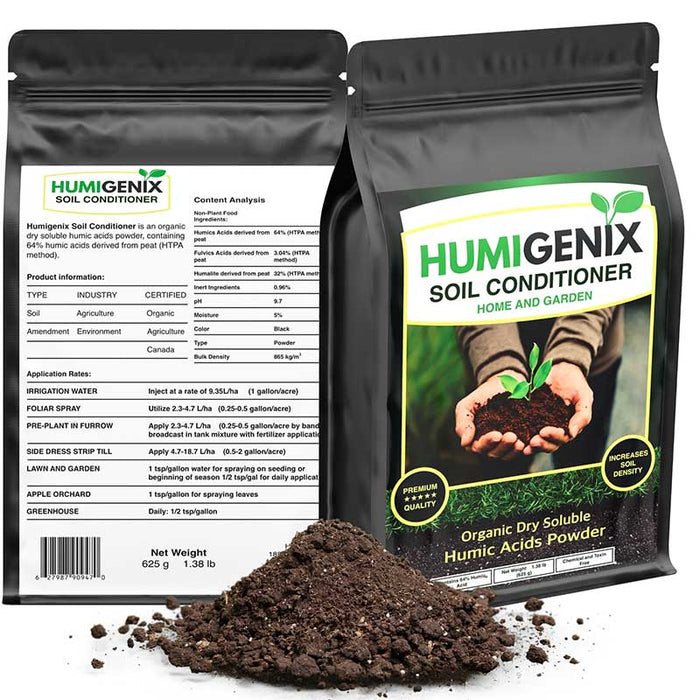
On Orders Over $250
On orders over $250

In short, decomposed organic matter naturally forms humic acids in the soil over long periods, allowing plants to fully uptake much-needed nutrients that are detrimental to plant health, strength, size, and overall yield. After a long span, the remaining leftover organic matter becomes a dark compound called humus, which resists further decomposition.
Since elite early-generation frontline farmers discovered the benefits of humic acids and the impressive properties of its dark long-chain molecules, the information was kept well-guarded from the general public. That's because humic acids work naturally to enhance plant growth and contain no toxins or chemicals, making for the best, cleanest, and healthiest produce.
Humic, fulvic, and humin are essential elements plants need to thrive. Without these basic elements, plants can become weak and lose volume. Furthermore, most soils in today's world lack these simple necessities after being stripped of all nutrients.
Earthworms, insects, protozoa, fungi, and bacteria consume new matter, which causes humification over time. A process in which highly stable soil compounds fully break down, thus forming large deposits. These rich humus deposits generally form in wetlands environments that were once teeming with plant and animal life but are no longer. Afterwhile, large rocks and sand eventually covered these swamp-like deposits and compressed them further, condensing every last drop of goodness.
Mother Earth is a dynamic planet and has the perfect elements necessary to sustain life as we know it. In essence, the lifecycle on Earth is perpetual and renewable. Unfortunately, modern man has decimated the face of the planet, contaminating soils with innumerable toxins and chemicals, trading sustainability for greed.
As nature has intended, plants, animals, and other organisms are constantly dying off and replenishing with new life. It's a constant loop. For new life to flourish, old life must perish, paving the way for new, but this process is long and drawn out and doesn't work in today's fast-paced society. So the soil must be replenished by hand and with a well-proven soil conditioner.
In recent centuries, careless and uninformed humans have polluted Earth's soils, making them unusable. Moreover, soil overuse, erosion, and the parchment of grounds have led to a real-world crisis. That's why blending humic acids into today's soils is paramount.
Once the organic matter from the Earth has depleted, it needs to be replaced, or new crops won't fair very well. Organic matter takes generations to replenish itself, and the modern farmer/grower doesn't have this time on their hands. Withal, the only solution is obtaining a premium humic-fulvic acids soil nutrient enhancer such as Humigenix Soil Conditioner. This product makes robust plant and crop yield possible using humic acids to replenish, enrich, and aerate depleted and parched soil matter.
There are many benefits of humic acids in soil. Here is a short list of what humic acids improve.
If you want actual results, you must ensure that you order a quality product. There are a lot of false claims out there and ineffective products that have flooded the marketplace.
I recommend Humigenix Soil Conditioner because I know it's leagues ahead of any other product. Best of all, it's accessible and readily available.
